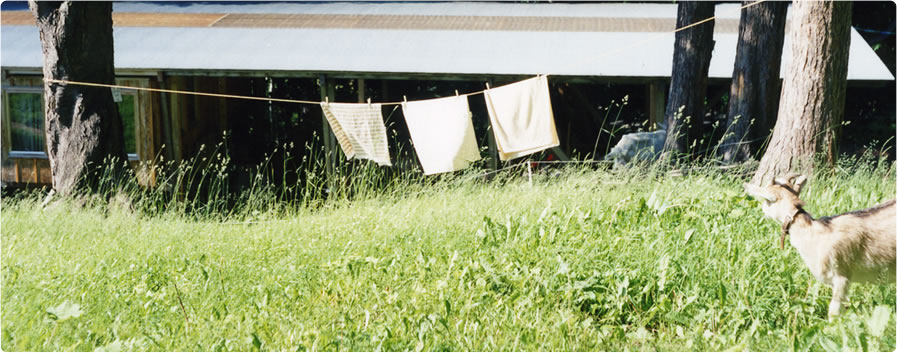

It all began about 20 years ago, when I was confronted with a shocking fact as a manufacturer and wholesaler of towels, handkerchiefs, T-shirts and other cotton products.
It was a news report saying that about 25% of the total amount of toxic chemicals used for agriculture is accounted for by those used for cotton production, while only 3% of the worlds farming land is used for cotton production.
Nevertheless, a great deal of chemical fertilizers, herbicides, pesticides, defoliants, and other chemicals were being used on cotton fields.
The even more shocking reality was that the same defoliant the U.S. military had used under the code name "Agent Orange" in its Herbicidal Warfare program during the Vietnam War was sprayed over vast cotton fields from airplanes before harvesting. I felt a very strong desire to not produce towels using such cotton.
This later led me to fly to Texas, in the United States, as I heard that a small number of Texan cotton growers had turned from conventional chemical-based agriculture to organic farming free from any toxic chemicals.
That is how it all started. We began to manufacture and market organic cotton products in Japan in the spring of 1993.
Sixteen years have passed since then. During these years, the expansion in the market for organic cotton products has been simply dramatic. Supported by international trends towards environmental consciousness, organic cotton products have found their ways into the daily lives of many people in the form of everyday necessities. However, expansion of an emerging market almost always entails mislabeling problems such as disguising materials or compositions. In fact, it is virtually impossible to identify what percentage of conventional cotton is contained in organic cotton, if it were to be mixed in. This is why we had our ten-i muhou brand third-party certified by the GOTS on January 15, 2009.
Wider marketing of organic cotton products that are certified to be free from toxic chemicals can provide encouragement to the small number of idealistic organic farmers and can have a direct positive impact on the conservation of the natural environment of the earth. There may not be much that we can do, but our sincere wish is that we can be part of the extensive network protecting the beautiful natural environment of the earth, as well as all ecosystems on the planet, by continuing to produce organic products that are completely traceable from the raw materials stage to the delivery of finished products, and we are striving hard to make them reach more and more people.
Toru Fujisawa, President and Representative Director
Shinfuji, Inc.
